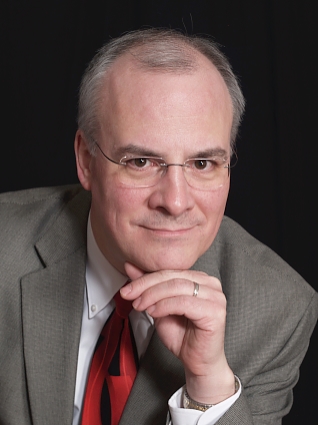2016 Fall Seminar with Curt Witcher
Saturday, September 17, 2016

Curt Witcher is the Senior Manager for Special Collections at the Allen County Public Library in Fort Wayne, IN where he manages The Genealogy Center. He is a former president of the Federation of Genealogical Societies and the National Genealogical Society.
His many presentations at family history conferences and seminars across the county have offered ideas and strategies to help individuals find and tell their family stories. We are very pleased to have him with us in Dallas!
Curt is a member of the Genealogy Committee of the American Library Association, a former president of both the Federation of Genealogical Societies and the National Genealogical Society, and the founding president of the Indiana Genealogical Society.
Topics
Session 1: Historical Research Methodology: Engaging the Process to Find all the Answers
Many genealogists miss opportunities to find consequential documents for advancing their research because they do not follow a standard research methodology, namely the “historical research methodology.” Special care is given in this lecture to emphasize the importance of some rather fundamental basics which, when used together, make for a powerful data‐gathering methodology: (1) working from present to past, from known to unknown; (2) documenting everything that is recorded, always looking for particular facts or pieces of data to reveal or uncover yet more information; (3) using the yardstick of “researching as broad as one researches deep,” i.e. using geographic contexts to open doors to migration and settlement groups, ethnic churches, cemeteries, and limited edition publications; and (4) placing one’s genealogical research in the proper historical context to maximize one’s record‐ gathering potential.
Session 2: German Migration into the Midwest
This presentation provides a basic strategy for uncovering information about why Germans migrated to the Midwest and the various routes they took to their destinations. Migration and settlement patterns are explored through published sources. Careful research into local history data and sources is emphasized as well as the use of unusual sources.
Session 3: Fingerprinting Our Families: Using Ancestral Origins as a Genealogical Research Key
This lecture explores how the concept of “America, the Great Melting Pot” may really be a flawed concept, and that identifying the particular ethnic group of one’s ancestor or potential ancestor can pay some significant research dividends. Topics covered in this lecture include how to build a historical context for one’s ancestor, studying population clusters, paying attention to patterns of all sorts (naming, migration, settlement, etc.), understanding the “push and pull” of migration (i.e. the reasons behind families or individuals migrating), and locating repositories for various ethnic groups.
Session 4: Native American/First Nations Research
This lecture provides an overview for the person just getting started doing Native American genealogical research. Emphasis is placed on the researcher paying close attention to historical details, the major differences between Euro‐American and Native American societies, and conducting his/her research within the proper historical and geographic contexts. Major records groups are defined with an extensive bibliography provided. Some consequential first steps in engaging in any type of Native American research are enumerated and discussed.
Logistics
Date
Saturday, September 17, 2016
- Registration - 9:30 AM - 10:00 AM
- Program - 10:00 AM to 4:30 PM
Location
1st floor Auditorium
J. Erik Jonsson Central Library
1515 Young Street, Dallas, Texas 75201
- Get directions from Google Maps
- The Dallas Public Library website has information on public transportation.
Cost (Includes parking in the Library garage.)
Note
Online registration has been disabled for this event. Walk-ins are welcome with the following caveats:
- We may not be able to provide a paper copy of the syllabus. However, we will be able to provide a PDF version
- Lunch will not be provided.
| Member: | $60 |
| Non-Member: | $70 |
| Lunch: | $12 |
Refund Policy
Requests for refunds made prior to September 5th will be granted (less a $10 handling fee). No refunds will be issued for cancellations made after the published Early Bird Cutoff Date (although we will provide a copy of the syllabus).
